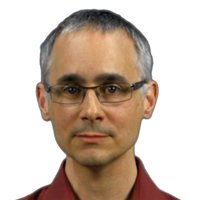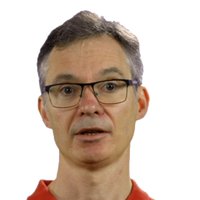Reproducible Research II: Practices and tools for managing computations and data
- Duration: 4 months
- Effort: 35 hours
- Pace: ~8h45/month
- Languages: English
What you will learn
At the end of this course, you will be able to:
Manage research data:
- understand the challenges posed by large volumes of data
- archive code and data on well-known archives such as Software Heritage and Zenodo
- integrate data into versioning (Git Annex)
- use structured binary data formats (FITS, HDF5)
Use tools and techniques for controlling the software environment:
- understand how software packages are built and managed
- deploy software environments as containers (ex: Docker)
- manage software environments using a functional package manager (ex: Guix)
- work in controlled software environments on a daily basis
Automate long or complex computations using workflows:
- understand the challenges of scaling up: long calculations, distributed calculations
- choose a workflow tool adapted to your needs
- automate a data analysis using make and snakemake
- control the software environments of a workflow
Description
Following the success of the MOOC "Reproducible research: methodological principles for transparent science", the authors continue on the same theme, dealing more specifically with the issues of massive data and the complex calculations associated with them. These two MOOCs complement each other and offer a coherent training program on the subject.
In this second MOOC, we will show you how to improve your practices for managing large data and complex computations in controlled software environments:
- you will learn how to use formats like JSON, FITS, and HDF5, platforms like Zenodo and Software Heritage, tools like git-annex, docker, singularity, guix, make, and snakemake;
- we will show you how to integrate them in a real-life use case: a sunspot detection study. You will see for yourself that our methods and tools allow you to work in a reliable and reproducible way.
The strength of this new MOOC lies in a general and systematic presentation of the major concepts and of how they translate into practical solutions through numerous hands-on sessions with state-of-the-art open-source tools.
Format
This MOOC consists of three independent modules that combine video lectures, quizzes, pratical sessions, textual course supports, and many exercises for getting hands-on experience with the tools and methods that are presented.
Most of the exercises can be carried out in a JupyterLab environment made available to each MOOC learner. Some exercises require a Linux computer and the possibility to install system software on it.
Prerequisites
This course is for everyone who relies on a computer to perform data analysis. You should have some experience with running commands in a terminal, and have a basic knowledge of git (at the level of the first MOOC) and scientific Python.
Assessment and certification
An Open Badge for successful completion of the course will be issued on request to learners who obtain an overall score of 50% correct answers to all the quizzes and learning activities. Assessment is based on quizzes and practical exercises.
Course plan
- Introduction with expert interviews
- Getting started with JupyterLab and sunspot time series
- 1.1 Archiving
- 1.2 File formats
- 1.3 Project Organization
- 1.4 Git Annex
- 2.1 On the Importance of Software Environment
- 2.2 Package Management Principles
- 2.3 Isolation and Containers
- 2.4 Using Containers
- 2.5 Building and Sharing Containers
- 2.6 Functional Package Managers (Guix, Docker, Singularity,...)
- 3.1 Why do we need workflows?
- 3.2 From notebooks to shell scripts
- 3.3 Workflows with `make`
- 3.4 Workflows with `snakemake`
- 3.5 Workflows and environments
Course team
Arnaud Legrand
Categories
Christophe Pouzat
Categories
Konrad Hinsen
Categories
Matthieu Simonin
Categories
Ludovic Courtès
Categories
Kim tâm Huynh
Categories
Organizations
With the support of Fonds national de la science ouverte
License
License for the course content

Attribution-NonCommercial-ShareAlike
You are free to:
- Share — copy and redistribute the material in any medium or format
- Adapt — remix, transform, and build upon the material
Under the following terms:
- Attribution — You must give appropriate credit, provide a link to the license, and indicate if changes were made. You may do so in any reasonable manner, but not in any way that suggests the licensor endorses you or your use.
- NonCommercial — You may not use the material for commercial purposes.
- ShareAlike — If you remix, transform, or build upon the material, you must distribute your contributions under the same license as the original.
License for the content created by course participants

Attribution-NonCommercial-ShareAlike
You are free to:
- Share — copy and redistribute the material in any medium or format
- Adapt — remix, transform, and build upon the material
Under the following terms:
- Attribution — You must give appropriate credit, provide a link to the license, and indicate if changes were made. You may do so in any reasonable manner, but not in any way that suggests the licensor endorses you or your use.
- NonCommercial — You may not use the material for commercial purposes.
- ShareAlike — If you remix, transform, or build upon the material, you must distribute your contributions under the same license as the original.







